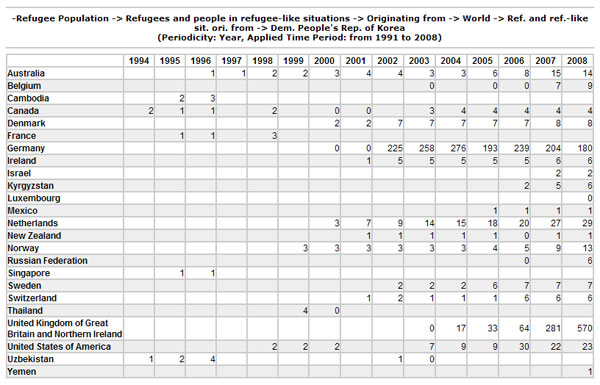According to Yonhap:
The growth of humanitarian aid sent to North Korea stayed almost flat in the first half from a year earlier, a U.N. agency said Wednesday, raising concerns about food shortages in the North.
The global community’s humanitarian assistance to the North amounted to a combined US$21.3 million in the January-June period, compared to $20.6 million in the same period last year, according to data compiled by the United Nations Office for the Coordination of Humanitarian Affairs.
But the figure in the first half marked a 40 percent decline when compared to $35.6 million in the first half of 2013, it showed.
The U.N. and six countries — South Korea, Switzerland, Sweden, Canada, France and Germany — supplied humanitarian aid to Pyongyang this year.
Switzerland was the top donor with $9.17 million, or 43 percent of the total aid, followed by South Korea with $4 million and Sweden with $3.23 million, the data showed.
By type, food and nutrition aid topped the list with $9.64 million worth contributed, followed by healthcare work at $6.2 million, and the supply of drinking water at $2.4 million, it said.
A separate U.N. report showed that about 70 percent of North Korea’s 24.6 million people are suffering due to food shortages and 1.8 million, including children and pregnant women, are in need of nutritional food supplies aimed at fighting malnutrition.
Aid from China and Russia would not appear in this study.
Read the full story here:
Humanitarian aid to N. Korea almost flat on-year in H1
Yonhap
2015-7-1

